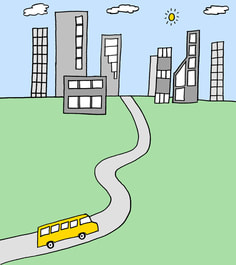Sound city Reading Blog |
|
I recently received a message via the survey on this website that someone is not able to download the PDF files he or she wants because of their large size. I apologize for this enormous frustration. I know quite of few of the PDF files are very large because they have many, many pictures in a single book or single set of charts.
There are several types of files that I use. I compose my materials in Microsoft Publisher. When finished, I save a copy of the Microsoft Publisher file as a PDF file. I also work with various image files. Most of my images are in a tiff, png, or jpeg format. I decided to play with one of my larger files to see if I could make it smaller, so that it could be downloaded more quickly. This is what I discovered. I can make a Microsoft Publisher file or a file folder with a set of pictures smaller by compressing it. This often makes it possible to reduce the size of the file enough to email it within the usual size limits. In my experience, when sending a folder with individual picture files online it is very worthwhile to compress the folder first. The file size will be much smaller. The user will need to extract the images in the file after receiving it, which is easily done. I tried compressing a Microsoft Publisher file, thinking that might be helpful for visitors to this site to speed up the downloads. But I discovered that there was no way to convert the compressed file to a PDF file. This would be necessary, since many people don't have the Microsoft Publisher program and wouldn't be able to open it in that format. I also found that if you compare a compressed Publisher file to a PDF file created from the same original file, the PDF file is much smaller than the compressed file. So making a compressed Publisher file available instead of a PDF file would not be advantageous. It is possible to make the PDF files themselves smaller. To do so, I would have to change the specifications when I create the PDF files. As I thought about this, I remembered that I printed many test pages from PDF files when I first started putting my materials together. I tried printing with a variety of settings. I found that adjusting one of the settings to 600 dpi made the pages easy to read, with sharp, crisp lettering and clear line drawings. This is true if the pages are printed, viewed on a computer screen, or displayed on a projector. It is very important to me to use this setting so that students would always be able to see the words and pictures clearly. So in order to meet this standard, I cannot make the PDF files any smaller, to my knowledge. It does appear that I could subscribe to a paid service to reduce the size of PDF files. I'm not sure what the quality of the files would be after conversion. And I'm afraid that spending more money above the cost of this Weebly website and the Vimeo charges for supplying the videos is not something that I can do. If you are trying to download PDF files from this site without success, you might first try using a different browser. Be sure that you're waiting several minutes for each file to download. If that doesn't work, the easiest remedy would be to use a newer, faster computer and a faster connection to the internet. However, I know that this is not possible for many individuals. If you are not able to download the files you want, please email me at [email protected]. If you are willing to use a file that will not have as much sharp detail as the regular files, I will try to make the file smaller for you. This will be time consuming, so I can't do this for every file on the site. But if there are specific files you need at this time, let me know and I will try to get them ready for you. If you are familiar with technology that would solve this problem, I would appreciate hearing from you. Kathryn Davis Comments are closed.
|



 RSS Feed
RSS Feed
